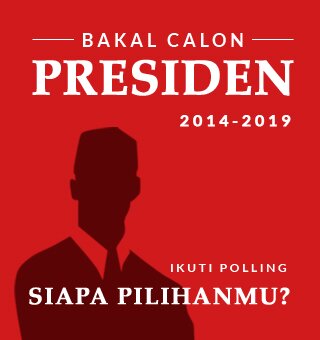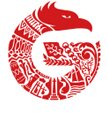2045: Path to Nation’s Golden Age

On Aug. 17 we commemorated and celebrated 68 years of independence. The yearly display of sacred and ceremonious spirit proves that the country’s younger generation can cultivate a deep sense of nationalism and give it renewed meaning for the future.
Indonesia’s journey since independence has encountered hardship at times but also reached important milestones. The generation of 1945 fought for and won our independence. The generation of 1966 continued with the objective of maintaining macroeconomic stability and focused on the development of critical infrastructure in every corner of our archipelago. And despite suffering from a structural financial crisis, the generation of 1998 demanded reform that would spread to all layers of society and in the end would usher in the era of democracy for Indonesia.

Our healthy democracy has been reinforced by a commitment from all layers of society to ensure that the euphoria of newfound freedoms does not breed excess. Economic development and democratization continue to exhibit a mutually reinforcing relationship. Even when the global financial crisis struck the United States in 2008, Indonesia was able to sustain itself. It is understandable then if the younger generation now is being called a transformative generation, prepared to turn threats and challenges in a highly uncertain 21st century into meaningful opportunities.
Surpassing expectations
Thirty-two years from now, in 2045, we will commemorate the 100th year of independence. At that time we hope to be in the midst of a golden age with yet another generation leading this great nation. This generation will rise on the back of our competitive and competent human capital. This view is in line with President Susilo Bambang Yudhoyono’s vision of the future as detailed in the journal Strategic Review: “Not only can the Generation of 2045 match the strength and spirit of the Generation of 1945, but they will surpass the expectation of their elders.”
Central to taking on this mantle of the golden generation, we must identify the opportunities and challenges confronting our nation. But this is not easy to do.
What Indonesia looks like in 2045 will be determined by the efforts of people from all layers of society. Most importantly, our transformation will require mental and physical endurance and unwavering commitment. This transformation will be a marathon, not a sprint. And to turn challenges into opportunities, we must embrace change, particularly in relation to information and communications technology. This will help alleviate the pressures that an estimated 9 billion global population will face: the potential for scarcity, competition and conflict on issues ranging from energy and food to water.
Our current president predicts that in 2045 Indonesia will be a nation that is free, democratic, just, open, interconnected and prosperous. This will be realized if his three targets regarding the state of Indonesia’s economy, democracy and civilizational development are achieved by 2045. Echoing the president’s predictions, I would like to add one point: the state of our military.
Homegrown democracy
The first prediction is that Indonesia in 2045 will become the seventh-largest global economy with a GDP of about $12 trillion. At $37,000 per capita, this is close to 10 times the wealth enjoyed by each person on average in Indonesia today. However, to reach this level of prosperity, what is required is a five-track strategy that builds on the five tracks laid out by President Yudhoyono. His tracks are pro-growth, pro-poor, pro-jobs and pro-environment. The fifth one I propose is pro-technology.
The second prediction is that Indonesia’s democracy will be stable and mature. Democracy, freedom and the euphoria of the ballot is not our nation’s ultimate goal. As emphasized by the president, Indonesia has reached the point of no return with respect to its form of governance. A culture of democracy will be nurtured and accompanied by the rule of law and social justice.
Indonesia is the third-largest democracy in the world, a far cry from its authoritarian past. Still, democracy remains a process to achieve overarching national aims such as creating a nation that is secure, at peace and prosperous.
Underlying all this is a consistent effort to uphold the law and our traditional values as a civilization. In other words, democracy in Indonesia must be homegrown, so that our local cultures and ethics remain the basis of a vibrant and representative democracy.
The third prediction is that Indonesian civilization will be advanced and held in high esteem. Our nation in 2045 is predicted to be peaceful, tolerant and harmonious. Our people will form an open society that respects and upholds pluralism and syncretizes external ideas and influences so that our local cultures become stronger, richer and more beneficial to our nation as a whole. To achieve this, we must foster a spirit of multiculturalism, especially by advancing our national motto of Bhinneka Tunggal Ika , or Unity in Diversity, and strengthen the harmony our society has valued for centuries.
Lastly, given a strong economic foundation, Indonesia will possess a strong military force. This is a prediction to complement three earlier predictions made by the president.
Essential force
From the military perspective, a strong economy must be accompanied strong armed forces. With just 1 percent of GDP allocated to the defense industry, by 2045 the country can have a modern and hi-tech main weapons systems to safeguard its sovereignty and unity. In other words, in 2045 Indonesia will be a strong military power.
To be sure, this does not mean that Indonesia will take an aggressive stand against other countries in the region, but rather that it will be taken seriously in its efforts to guard its sovereignty from any external or internal threat. Professional soldiers on the ground must have high-quality weapons systems so that from Sabang to Merauke, and from Miangas Island to Rote Island, they will be provided cover from hi-tech fighter jets, warships and Unmanned Aerial Vehicles.
This is important not only to safeguard our sovereignty but also to minimize casualties when conflict does arise.
Sufficient defense spending would allow Indonesia to realize a Minimum Essential Force that is absolutely necessary for our military if it is to anticipate and deal with the wide spectrum of threats in our globalized era.
Our military must be ready to be deployed not only for war but also for Military Operations Other Than War. This requires our soldiers to stand shoulder to shoulder with all layers of society in responding to natural disasters and other non-conventional security threats. This must be backed by military diplomacy and defense cooperation with our allies and partners. Indonesia will be feared by its enemies and respected by its friends.
To deliver on these four predictions, three preconditions must be met. First, our human capital must be developed so that it values a culture of excellence that would allow Indonesia’s younger generation to adapt to uncertainties and change. Second, our younger generation must resist complacency in this moment of transformation and turn coming challenges into game-changing opportunities. Third, our younger generation must act in time, embodying the motto: “Think big, do small, do now.”
All this requires exceptional leadership from all layers of society. We will be able to make Indonesia a much better nation by 2045, but preparations should start now.
Agus Harimurti Yudhoyono is a 2000 Military Academy graduate, a UN peacekeeper and a Harvard alumnus.
(The Jakarta Globe)







Comment 1